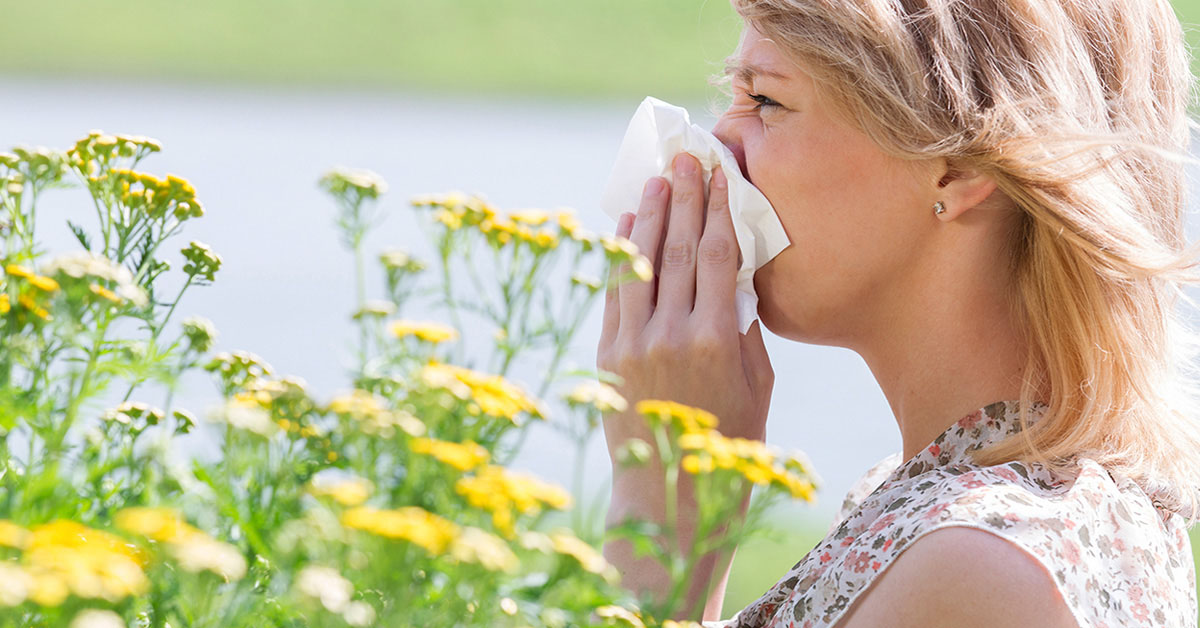
What is Allergic Rhinitis
An allergic reaction to allergens such as grass, pollen, dust, and animal dander is known as allergic rhinitis. When it is caused by seasonal allergens, it is often referred to as hay fever. The American Academy of Allergy & Immunology has found that approximately 8 percent of adults in the United States experience some type of allergic rhinitis. Here's a closer look at the causes, risk factors, symptoms, and treatments of allergic rhinitis.
Causes of Allergic Rhinitis
When the human body comes in contact with an allergen, histamine, a natural chemical that defends the body from allergens releases. Histamine may lead to allergic rhinitis as well as its symptoms. It dilates the blood vessels of the nose and causes fluid to leak out into surrounding tissues, leading to itching, runny nose, watery eyes, swelling, and other common allergy symptoms.
Although tree pollen is the most common allergen, other examples of allergens include grass pollen, dust, animal dander, cat saliva, and mold.
Risk Factors of Allergic Rhinitis
Patients with a family history of allergies are more susceptible to developing allergic rhinitis. Asthma or eczema may also increase patient risk for this condition. In addition, there are some external factors such as cigarette smoke, chemicals, and perfumes which may prompt or worsen allergic rhinitis.
Symptoms of Allergic Rhinitis
The most common symptoms of allergic rhinitis are sneezing, a stuffy, itchy, or runny nose, coughing, a scratchy or sore throat, itchy or watery eyes, constant headaches, dry, itchy skin, hives, and excessive fatigue.
Patients living with allergic rhinitis typically experience one or more symptoms right after they come in contact with an allergen. However, symptoms like fatigue and headaches may only arise after long-term exposure.
Treatment of Allergic Rhinitis
There are a variety of treatment options for allergic rhinitis. Some of the most common ones are as follows:
- Antihistamines: Antihistamines stop the body from producing histamine. The most popular antihistamines are Allegra, Benadryl, Claritin, and Zyrtec.
- Decongestants: Decongestants are designed to relieve sinus pressure and a stuffy nose. They can only be used for up to three days as any longer use will lead to a rebound effect and worsen the condition. Sudafed and Zyrtec D are a few examples of frequently used decongestants.
- Eye Drops and Nasal Sprays: Eye drops and nasal sprays may alleviate symptoms such as itchiness. However, like decongestants, they may cause a rebound effect and can only be used temporarily.
- Immunotherapy: Also known as allergy shots, immunotherapy reduces a patient's immune response to certain allergens over time.
Prevention of Allergic Rhinitis
There are several ways patients may be able to prevent allergic rhinitis. Staying indoors when pollen counts are high, refraining from outdoor exercise in the early mornings, and taking showers right after spending time outdoors may help.
Removing carpet from the home, keeping windows and doors shut, and covering the mouth and nose while performing yard work may be beneficial as well.

